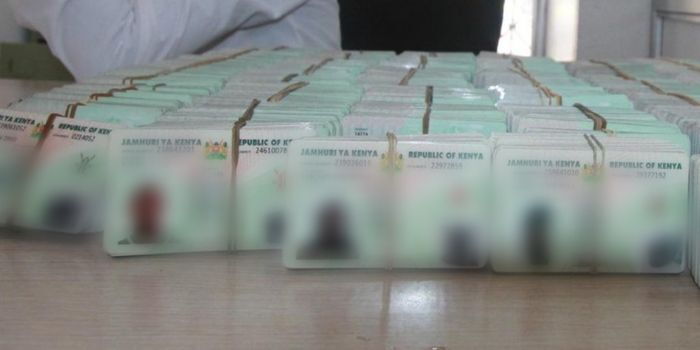In what could be one of the most significant human rights milestones in Kenya’s recent history, the government has introduced a new draft law that promises to grant citizenship to thousands of stateless individuals—many of whom have lived in the country their entire lives without legal recognition.
The proposed Kenya Citizenship and Immigration (Amendment) Bill, 2025, will drastically overhaul the country’s citizenship regime by scrapping the requirement of seven years of continuous residency for stateless persons to apply for nationality. The bill also introduces an entirely new pathway: citizenship by ancestry, allowing people of Kenyan descent living abroad to reclaim their rightful identity.
The announcement has sent shockwaves through marginalized communities, civil society organizations, and the Kenyan diaspora, with many calling the move long overdue.
The Faces Behind the Law
For decades, communities such as the Nubians, Shona, Pemba, Galjeel, and Rundi, among others, have been locked in a legal and social grey zone. Despite being born and raised in Kenya, many of these individuals have been denied national IDs, passports, voting rights, and access to public services. Children have grown into adults with no legal proof of existence.
Human rights activists have described the current situation as “institutionalized invisibility.”
This draft law, once passed, will acknowledge these populations as full Kenyan citizens by registration, without the bureaucratic hurdles that have blocked them for generations.
Revolutionary Clause for Diaspora Kenyans

Another groundbreaking provision is the recognition of Kenyan citizenship for individuals born abroad to parents or grandparents of Kenyan origin. Previously, those born outside the country to Kenyan descendants had no legal route to citizenship unless they fulfilled stringent residency or marriage conditions.
If passed, the new law will open the door for second and third-generation Kenyans abroad to reconnect with their roots and contribute to the country’s growth without the fear of being excluded by paperwork.
Legal and Social Impact
The implications of this reform are massive:
- Education Access: Stateless children will be able to enroll in schools and sit for national exams under their own names.
- Healthcare Coverage: Citizens will now be eligible for NHIF and other government medical programs.
- Freedom of Movement: Passports will no longer be out of reach for communities once trapped within their own borders.
- Banking and Employment: Identification cards will unlock access to formal jobs, loans, and economic opportunities.
This law also addresses glaring gender disparities in past policies, which limited women’s ability to pass on citizenship to their children. The amendment proposes equal parental rights, a move that aligns Kenya’s legal framework with international human rights treaties.
A Race Against Time
However, legal experts caution that while the bill’s intentions are bold, its implementation will be the true test. Without a well-funded, efficient vetting process, many eligible individuals could remain locked out. Civil registration offices, long criticized for discrimination and corruption, will require urgent reform and oversight.
Meanwhile, the United Nations High Commissioner for Refugees (UNHCR) and the African Union have expressed support for the bill, calling it a “model for the continent” if properly enforced.
Political Will Under the Spotlight
With the 2027 general elections on the horizon, the draft bill could become a political flashpoint. Supporters argue it’s a moral and legal necessity. Critics worry it could be manipulated for voter registration or political patronage.
Nonetheless, Kenya now stands at a historic crossroads.
This bill is not just a legal document—it is a lifeline. For thousands of people, it could mean the difference between perpetual exclusion and finally being called what they have always been: Kenyan.













Leave a Reply